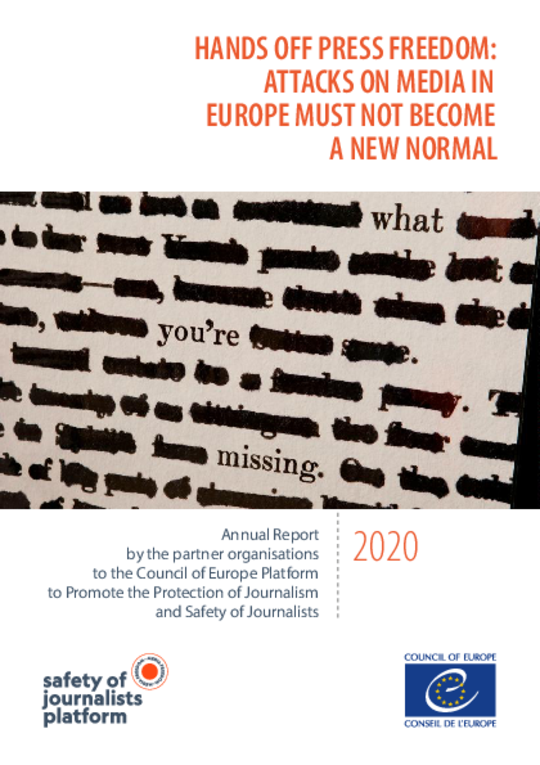The report analyses alerts submitted to the Platform in 2019 and shows a growing pattern of intimidation to silence journalists on the continent. The past weeks have accelerated this trend, with the pandemic producing a new wave of serious threats and attacks on press freedom in several Council of Europe member states.
In response to the health crisis, governments have detained journalists for critical reporting, vastly expanded surveillance and passed new laws to punish “fake news” even as they decide themselves what is allowable and what is false without the oversight of appropriate independent bodies.
These are some of the key findings:
- The Council of Europe’s Platform to promote the protection of journalism and the safety of journalists (the Platform) recorded 142 serious threats to media freedom, including 33 physical attacks against journalists, 17 new cases of detention and imprisonment, 43 cases of harassment and intimidation, and two new cases of impunity for murder. Taken together, these alerts show a growing pattern of intimidation to silence journalists that requires urgent actions by member states to uphold the essential role of a free press in democratic societies.
- Two journalists were killed in Council of Europe member states during the year: Lyra McKee was shot while covering a demonstration in Northern Ireland (United Kingdom) and Vadym Komarov died of severe injuries following an attack in Ukraine. Other alerts indicate that impunity is now shielding perpetrators in at least 22 cases of journalist killings in eight countries, calling into question Europe’s collective commitment to the rule of law. At the time of publication, those responsible for the murders of Daphne Caruana Galizia in Malta in 2017 and of Ján Kuciak and his fiancée Martina Kušnírová in Slovakia in 2018 had still not been brought to justice.
- After lengthy delays, Slovak authorities took meaningful steps toward ensuring justice for Kuciak and Kušnírová: in October, prosecutors indicted the suspected mastermind in the murder and four alleged accomplices. At the end of 2019, at least 105 journalists were behind bars in Turkey, Azerbaijan, the Russian Federation and the Russian-controlled Ukrainian territory of Crimea.
- Despite the release of 27 journalists in Turkey, four in Azerbaijan and three in Ukraine, Europe’s record for jailing journalists remained abysmal.
- At the end of 2019, at least 105 journalists were behind bars in Turkey, Azerbaijan, the Russian Federation and the Russian-controlled Ukrainian territory of Crimea.

